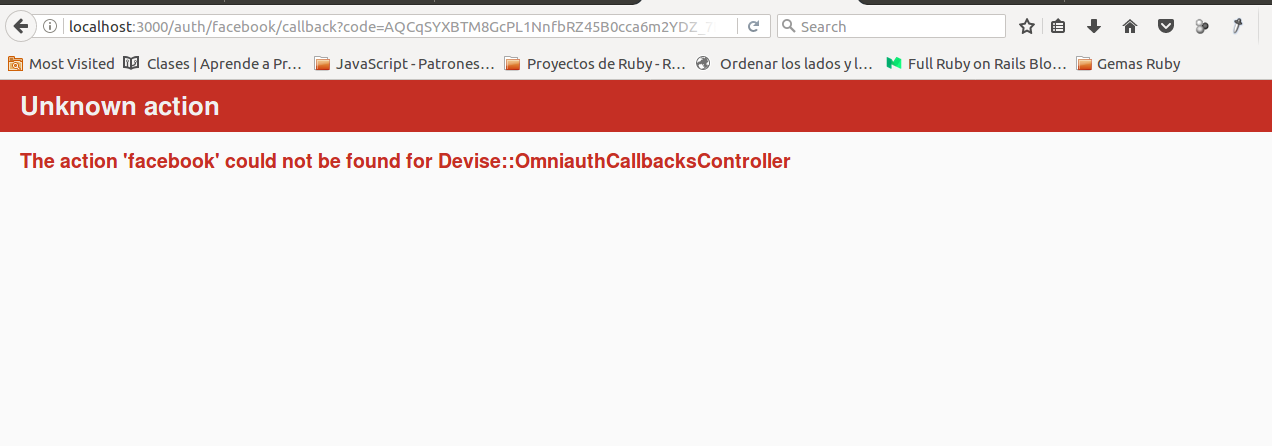Routes.rb
Rails.application.routes.draw do
root 'pages#home'
devise_for :users,
path: '',
path_names: {sign_in: 'login', sign_out: 'logout', edit: 'profile', sign_up: 'registration'},
contollers: {:omniauth_callbacks => 'users/omniauth_callbacks'}
end
Controlador: omniauth_callbacks_controller.rb
class Users::OmniauthCallbacksController < Devise::OmniauthCallbacksController
def facebook # You need to implement the method below in your model (e.g. app/models/user.rb) @user = User.from_omniauth(request.env["omniauth.auth"])
if @user.persisted?
sign_in_and_redirect @user, :event => :authentication #this will throw if @user is not activated
set_flash_message(:notice, :success, :kind => "Facebook") if is_navigational_format?
else
session["devise.facebook_data"] = request.env["omniauth.auth"]
redirect_to new_user_registration_url
end
end
def failure
redirect_to root_path
end
end
Modelo : User
class User < ApplicationRecord
# Include default devise modules. Others available are:
# :confirmable, :lockable, :timeoutable and :omniauthable
devise :database_authenticatable, :registerable,
:recoverable, :rememberable, :trackable, :validatable,
:confirmable, :omniauthable, :omniauth_providers => [:facebook]
validates :fullname, presence: true, length: {maximum: 50}
def self.from_omniauth(auth)
user = User.where(email: auth.info.email).first
if user
return user
else
where(provider: auth.provider, uid: auth.uid).first_or_create do |user|
user.email = auth.info.email
user.password = Devise.friendly_token[0,20]
user.fullname = auth.info.name # assuming the user model has a name
user.image = auth.info.image # assuming the user model has an image
user.uid = auth.uid
user.provider = auth.provider
# If you are using confirmable and the provider(s) you use validate emails,
# uncomment the line below to skip the confirmation emails.
user.skip_confirmation!
end
end
end
end
